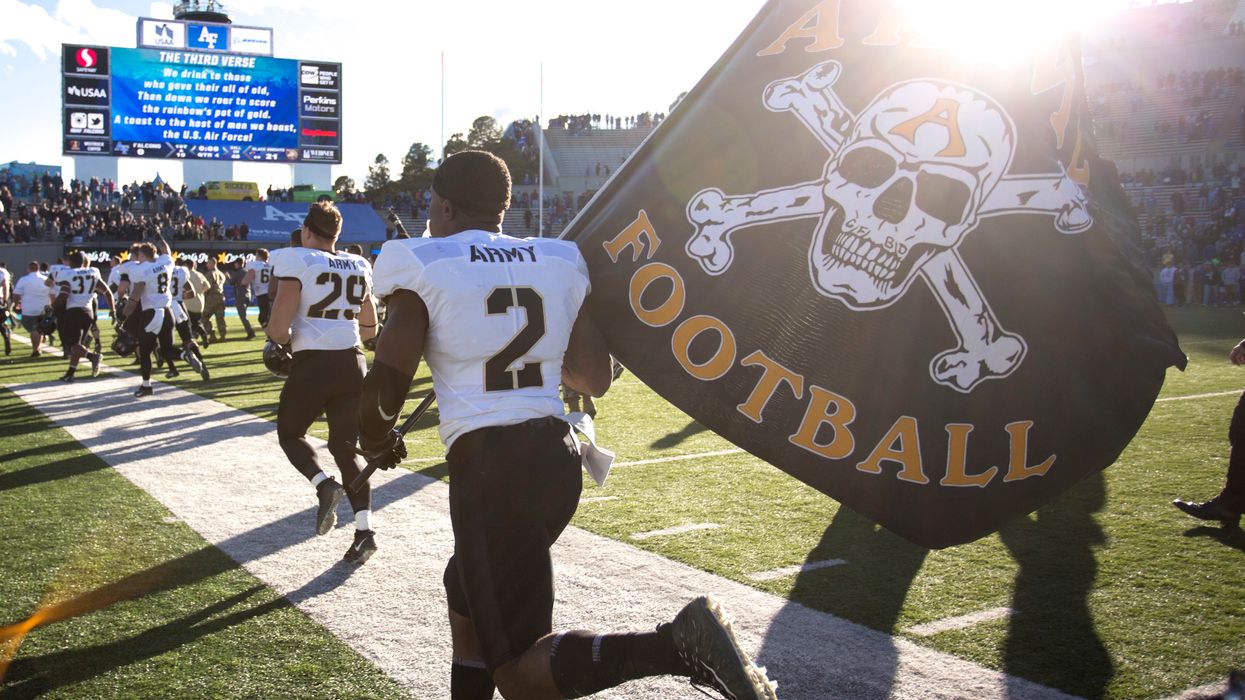
Kyle Emery/Icon Sportswire via Getty Images

The academy removed it in September when the origins were discovered
The Army college football program has ended its use of a slogan that allegedly originated with white supremacist groups in the 1990s, according to ESPN.
In 1996, the phrase "God forgives, brothers don't" was implemented in the football program, most prominently on a team flag that depicts a skull and crossbones, with the letters "GFBD" on the upper-lip area of the skull.
The phrase was discovered to be tied to the Aryan Brotherhood and outlaw motorcycle gangs, with its meaning being to discourage snitching.
Army players reportedly adopted the phrase from the movie "Stone Cold," which starred former NFL linebacker Brian Bosworth as a police officer who goes undercover with a biker gang called "The Brotherhood" that displayed Confederate and Nazi flags and wore jackets with burning crosses and SS lightning bolts.
The program discovered the origins and discontinued its use in September.
"It's embarrassing, quite frankly," said Lt. Gen. Darryl Williams, the U.S. Military Academy superintendent. "We take stuff like this very, very seriously. Once I found out about this goofiness, I asked one of our most senior colonels to investigate."
Officials found that there was no ill intent involved with adopting the phrase. The cadet who first introduced the phrase told investigators he didn't know about the white supremacist connections.
The flag hadn't been used for years when head coach Jeff Monken brought it back after taking over the team in 2014.
"That's become our symbol," a player told ESPN in August. "I don't know if you can see it, but it says 'GFBD' over the teeth. God forgives, brothers don't. That's just something we always say, and that's become part of us."
Army officials tried to discourage ESPN from reporting on the phrase in August, even though the program claims it didn't know about the origin of the phrase at the time, and ESPN was also unaware at that time. An Army spokesman said that was due to concerns over the religious association of a phrase invoking God.